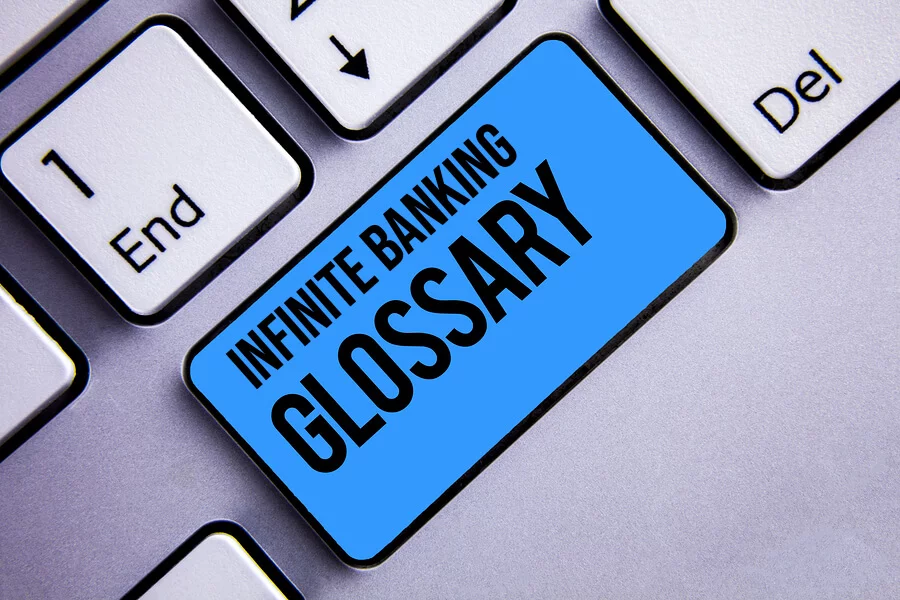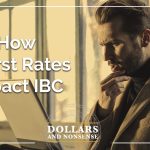Infinite Banking Concept Defined
Before we dive into common infinite banking terms, let’s quickly take a look at the infinite banking concept itself, and how this system of personal money management works.
Infinite banking was conceptualized by a man named Nelson Nash in the early 1980s. Nash was struggling to build wealth at the time, thanks to having to pay high rates of interest on his credit. When he realized that much of his financial frustration was due to a lack of liquidity, and debt that incurred interest, he struck upon an idea, which became what is known as infinite banking. IBC works by individuals investing their savings into a whole life policy. The money put into the whole life policy generates interest and accumulates. From this policy, the holder can take out loans if need be. The family of the holder is also financially protected in the event of the death of the policyholder. When they do pass, the family is paid out.
Advantages of Infinite Banking
The Infinite Banking Concept method of personal banking has a number of key advantages. These include:
- Financial security for the family
- Long term savings and wealth building
- Liquidity of savings, which equates to good cash flow
- Non-taxable interest earned
- Interest paid on money borrowed from the fund is set and does not change for the duration of the policy
One of the benefits that people love about infinite banking is that it essentially helps you become your own banker. If you want to take a loan from yourself, you simply call your insurance company, and the money arrives in a few days.
There are no complicated approval processes, no credit checks or fluctuating rates of interest. Policyholders are also in control of how they pay back loans from the policy.
Common Infinite Banking Terms Defined
Now let’s take a look at some of the common terms associated with infinite banking and their meanings.
1. Be Your Own Bank
Probably one of the most common terms used in infinite banking is to be your own bank. Through the use of whole term policies, you can essentially become your own banker, borrowing from yourself and repaying yourself at will, without common credit restrictions or interest rates that are out of your control.
2. Family Bank
Another similar term is family bank or private family banking. This means that same thing as Be Your Own Bank. It is simply referring to the fact that a family can gain control of their wealth building and cash flow through the infinite banking concept and whole term policies.
There are a number of other names for this, such as: bank on yourself, circle of wealth, and the perpetual wealth system.
3. Borrow From Yourself
As you can see, one of the key benefits of the infinite banking system is that if you need to take out a loan or leverage cashflow—either for emergencies or for an opportunity—you can do so at any point.
This is known as borrowing from yourself. When you choose to borrow from yourself, you are borrowing from your whole term policy. You can borrow up to the cash value of the policy, which is how much you have put into it.
4. Pay Yourself First
Most people pay themselves last. For the most part, in America today people send their money out to everyone else – to their landlord, their mortgage holder, to credit card companies – and they just hope that there’s something left at the end of the month for them. That’s not a good system to guarantee success.
If you paying yourself first, have your money work for you, you’re going to build wealth, reduce your reliance on interest-earning financial businesses such as credit card companies and banks. Instead, you use own money and borrow against it. You also set the terms based on what works for you, as opposed to having to meet terms laid out by a bank or other lender.
Learn more about paying yourself first in this episode of our podcast: Episode 7: Paying Yourself First
5. Whole Life Insurance
If you are interested in how infinite banking works, one of the first things you will need to understand are the terms whole life insurance and term life insurance.
Let’s take a look at whole life insurance first.
Whole life insurance is insurance that covers policyholders for their entire lives. This type of life insurance does not expire.
In some cases, whole life policies may have a cut-off point, generally at 95, 98, or 99 years of age. At that point, the policy will be paid either to the holder or to the beneficiaries in full.
The premiums for whole life insurance are a lot higher than for term insurance. However, over time, these policies increase savings.
Learn more about types of whole life insurance policies here. Also learn more in this episode of our podcast: Episode 20: How to build the perfect insurance policy
6. Term Life Insurance
Term life insurance is more popular nowadays than whole life insurance. This is largely because premiums are much lower.
However, term life insurance policies only run for a set period, such as 15 or 30 years. When this period is up, the policy expires, and—unlike whole life policies—the money that you put into it evaporates.
What’s more, while the premiums are low for younger holders, they increase substantially as you age.
Are You Fascinated by the Infinite Banking Concept?
Are you like us? Fascinated by the infinite banking system?
If you want to figure out how you could use the infinite banking concept to build wealth and financial stability, we are the folk you want to speak to. Passionate about providing people with the tools to thrive financially, we are eager to help you understand more about infinite banking.
To learn how to get started with becoming your own bank, schedule a private consultation with us and let us set you off on the path to financial freedom.






